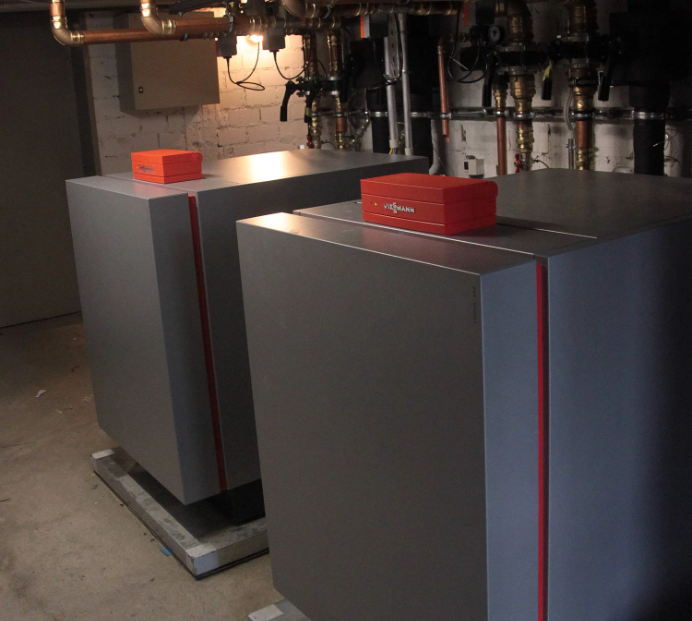Long-term cost benefits and environmental friendliness of heat pumps

A recent study by the Fraunhofer Institute for Solar Energy Systems ISE shows that heat pumps and district heating are not only more environmentally friendly as heating systems, but also more cost-efficient than gas heating in the long term. The analysis, which covers a period of 20 years, takes into account future developments in energy prices and CO2 costs.
The decision to replace or renew a heating system is a long-term investment. Many consumers focus mainly on the initial installation costs, but often neglect to calculate the total costs over the life cycle of the heating system. In a new study, researchers at the Fraunhofer Institute for Solar Energy Systems ISE have analysed the costs of various heating technologies in existing residential buildings over a period of 20 years. They took into account future energy prices and the development of CO2 prices. Their conclusion: heat pumps and district heating are not only more climate-friendly, but also cheaper than gas heating in the long term.
The study focused on existing residential buildings and took into account the subsidies that came into force on 1 January 2024 as part of the Building Energy Act (GEG) and the funding guideline “Federal funding for efficient individual building measures”. The researchers assessed the costs of replacing heating systems and analysed the emissions of various technologies.
“When investing in a new heating system, all expected costs, in particular the energy costs including the CO2 price component, should be taken into account over the entire life cycle,” explains Robert Meyer from Fraunhofer ISE. According to the study, switching to heat pumps or district heating also results in a positive cost balance for old buildings.
The study showed that heat pumps in single-family homes are not only more environmentally friendly, but also more economically advantageous. The use of photovoltaics for self-consumption can further reduce overall costs. Even in apartment blocks, switching to heat pumps or district heating is more cost-effective than a new gas heating system.
The study included various heating technologies such as gas condensing boilers, air source heat pumps (with and without photovoltaic systems), geothermal heat pumps, pellet heating systems and district heating. The researchers recommend providing consumers with transparent information on expected emissions and energy prices, including CO2 prices, to facilitate decision-making.